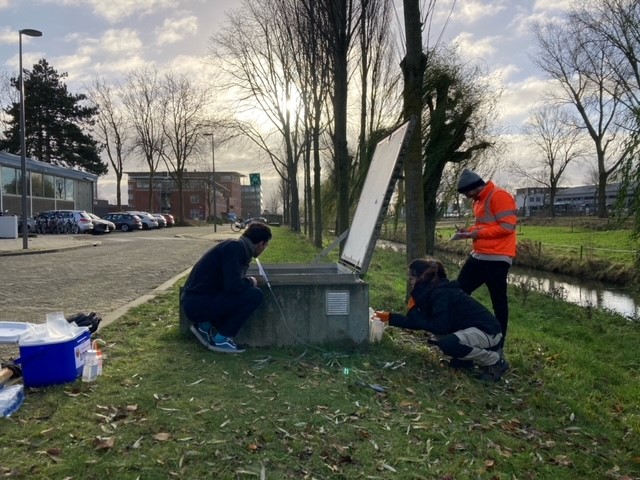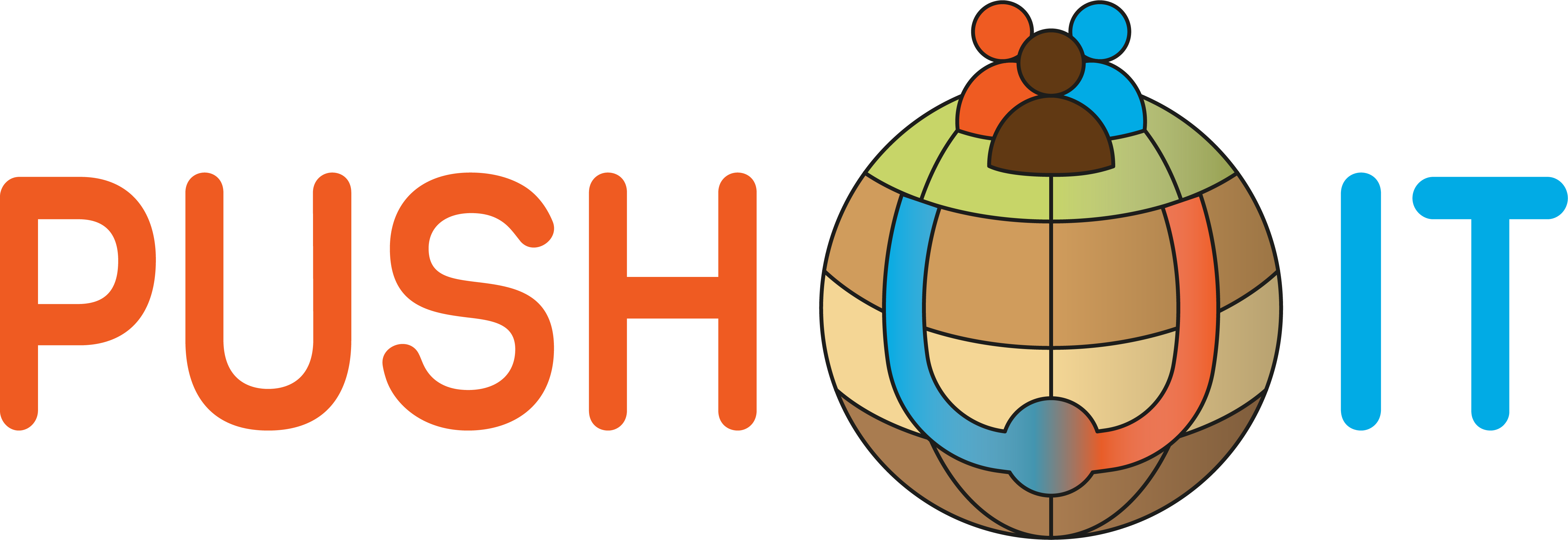Exploring Microbial Diversity: Water Quality Research at the Delft ATES pilot site
How does underground thermal energy storage influence microbial diversity?
This is one of the topics being researched using water quality sampling. Maud Watkinson and Sylvain Stephant, researchers at French Geological Survey (BRGM), recently visited the PUSH-IT pilot site in Delft to tackle this question.
At the Delft and Berlin pilot sites, aquifer thermal energy storage (ATES) is being developed. With this technique, heat is stored in aquifers: underground layers that can contain and store water. The water in these layers can contain a diversity of microorganisms (microbes). Maud’s PhD work focuses on water quality and the evolution of microbial diversity during an ATES process.
"Preserving microbiology samples is a problem, as there is no consensus on a standard preservation method yet."
Maud Watkinson, PhD researcher at BRGM
The visit to the campus of Delft University of Technology was aimed at testing the methodology for water quality sampling, focusing on microbiology and sample conservation. Preserving microbiology samples is a problem, as there is no consensus on a standard preservation method yet.
Maud: “I have to transport my samples (filters) from Delft or Berlin to Orléans and during transport, a loss of genetic information or changes in diversity can occur. My aim was to obtain samples from an existing ATES to find the most effective conservation method and minimise these problems.”
(text continues after the image)

The team carried out several conservation tests. For example, some filters were kept cold in a cooler, and others were preserved with buffers, with different transport times.
“At BRGM, I then extract the DNA from the filters to see if there is any change in the DNA yield depending on the conservation method. I also send the extracted DNA for sequencing to see what the microbial diversity is and whether or not it is affected.”
Depending on the results, the most effective preservation method can be chosen.
In Delft, in addition to the samples for microbiology, water samples were also taken for geochemical analysis. The goal is to do a baseline measurement of the reservoirs microbial diversity and geochemical properties, and monitor these during the ATES process.
This way, PUSH-IT will contribute to new insights in water quality effects and monitoring in the development of underground thermal energy storage.

PUSH-IT is a project funded by the European Union’s Horizon Europe research and innovation programme under grant agreement No 101096566.
Funded by the European Union. Views and opinions expressed are however those of the author(s) only and do not necessarily reflect those of the European Union. Neither the European Union nor the granting authority can be held responsible for them.
